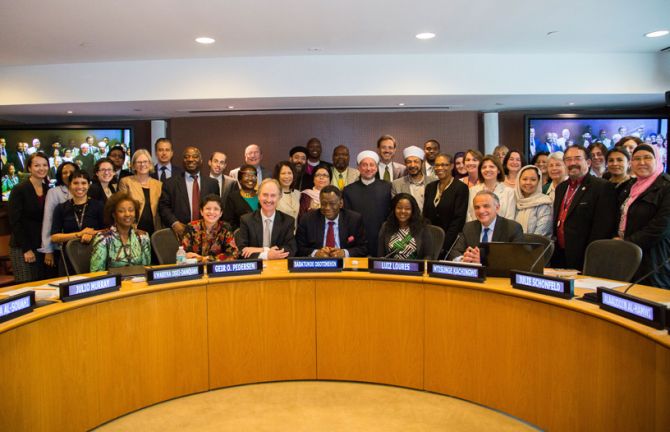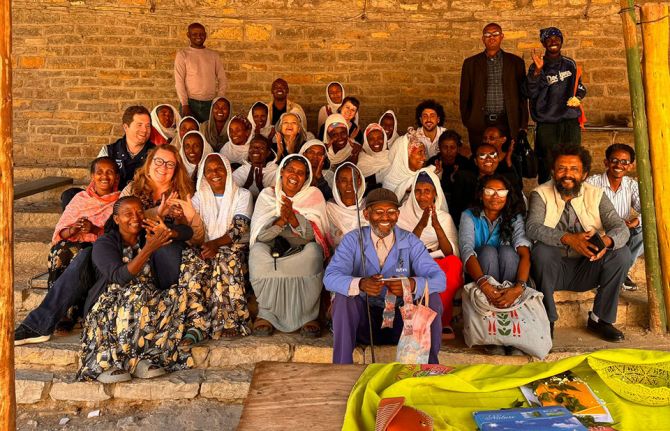

Update
Faith communities commit to championing sexual and reproductive health
22 September 2014
22 September 2014 22 September 2014The vital role of faith-based organizations in putting sexual and reproductive health firmly on the post-2015 development agenda was explored during a high-level side event at the United Nations General Assembly in New York.
Described as a “call to action”, the meeting, held on 18 and 19 September, brought together members of a broad range of faith communities from around the world, who were joined by representatives of the United Nations Population Fund, the Norwegian Agency for Development Cooperation and UNAIDS.
Participants discussed how to harness the influence of faith-based organizations and work with the United Nations system to help ensure that sexual and reproductive health and rights are central to the post-2015 sustainable development goals being debated by the General Assembly. This, it was argued, would build on the already active part many such organizations play in offering support in this critical sphere. Delegates agreed, for example, that the AIDS response has benefited tremendously from faith-based programmes in health service provision and community-based care, as well as in advocacy, the championing of human rights, gender equality and challenging stigma and discrimination.
It was acknowledged that the area of sexual and reproductive health and rights raises some contentious issues for a number of faith-based organizations, such as gender equality, contraception and sexuality education.
Quotes
"Faith-based organizations have been a tremendous partner in getting health services to women. Faith-based organizations go where the greatest need is and today are responsible for up to 60% of HIV treatment delivery in some communities around the world."
"We need an open and honest dialogue. We can change our culture even as we hold our values."
"Faith communities are strategic partners for sustainable development and the realization of human rights ... We recognize their critical role and we are committed to continuing to be strategic in our shared outreach to realize the post-2015 agenda."
"Too often by the time a young women comes to hospital she is already pregnant or raped; we can heal the wounds but the real problem is in the community. It’s about access to education. Most girls will never access formal education, but in any community there will be a religious leader. It’s the community, including religious leaders, who can provide the information. Young people are more likely to interact with someone from their own community."

